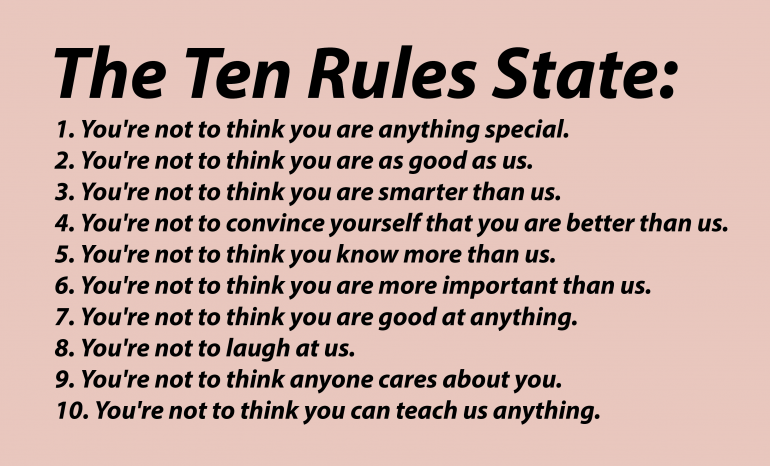Dos and Don'ts of Danish Culture
'Unwritten' rules of Danish culture

Hey everyone - me again!
I figured after my last blog post on making Danish friends, it might be a good idea to go into some general 'unwritten' rules of Danish culture. These are aimed both socially and professionally, as Danish work culture is really quite special compared to what I'm used to in the UK.
I've lived here for around 18 months now, and there is one super-important concept I have heard mentioned time and time again in multiple different settings and that is "Janteloven".
This concept comes from the 'Law of Jante'. Jante was a town in the satirical novel A Fugitive Crosses His Tracks (En flyktning krysser sitt spor, 1933), and it had 10 rules:
-
You're not to think you are anything special.
-
You're not to think you are as good as we are.
-
You're not to think you are smarter than we are.
-
You're not to imagine yourself better than we are.
-
You're not to think you know more than we do.
-
You're not to think you are more important than we are.
-
You're not to think you are good at anything.
-
You're not to laugh at us.
-
You're not to think anyone cares about you.
-
You're not to think you can teach us anything.
Now, these rules are pretty hardcore and let me begin by saying the Danes in no way take these completely literally. However, the spirit of the laws is definitely something Danes take to heart; many Danish people are fairly humble about their achievements, and there really is a sense of equality in society because of this focus on nobody being better than anybody else. I really like this concept as it encourages a high level of respect towards everyone, regardless of what they do!
Bearing this in mind though, when it comes to fitting in with Danes it's a good idea not to shout too loudly about all your achievements, as people may think you're a bit of a show-off! This can be a little tricky to balance when it comes to job applications, where you are really supposed to sell yourself, but don't worry - it's perfectly acceptable to tell people that you're good at things, just not that you're better than others at it. Not, confusing at all, right? 😉 If in doubt, go for a bit of self-depreciation, for example:
-
"I'm really the best at playing guitar, I can play (bla bla bla)" ❌ - too in-your-face braggy, this might not go down super well with Danish friends or colleagues, especially if they didn't ask your guitar playing skills in the first place...
-
"I've been playing guitar for five years, so I guess I'm getting pretty good now" ✔️ - subtlety is king here, by mentioning a length of time you've known a skill you can let people know you're an expert, without having to even say it!
Of course, it's not all as rigid as that - but it's really something to be aware of, especially if you come from a country or culture which takes a lot of pride in personal achievements.
Danish individualism:
For a society with such a focus on collective welfare, Danes can be surprisingly individualistic - but this is perhaps because of the great social security here, which ensures everyone is looked after.
- It is often said that Danes are reserved, and this can be true in many situations – especially if they do not know you. For example, most Danes will not speak to a stranger on the bus, so I don't recommend trying to make friends this way!
- Additionally, many Danes would not immediately offer to help if, for example, you had a heavy suitcase on the train. This is because in Danish society it is assumed that you will ask for help if you need it, and some Danes would even consider it rude to interfere without being asked. Once you ask, though, Danes are more than willing to oblige.
- Gender equality: men and women are very equal in Danish society, meaning there is no difference in the way they treat each other. Keep this in mind if you go on a date with a Dane - it is not expected that the man will pay - so girls take your purses with you, and guys don't be offended if she wants to pay half!
